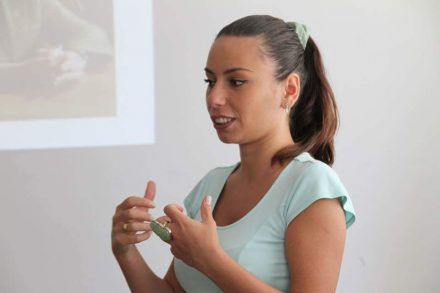Juvenile Justice, Rehabilitation-Resocialization and the Role of the Social Worker
17th June 2020

Recently, when the statistical data on juvenile delinquency has been increasing in our country, the issue has become more urgent. The most frequently asked questions on this issue are: who is responsible and how is it possible to deal with this challenge? Which system and who will identify the needs of the juvenile and respond appropriately? Does it require special education? Can any specialist work with the juvenile in this area?
It is obvious one particular system cannot prevent juvenile delinquency. This is the responsibility of all the systems or the society that the juvenile has contact with. This distinguishes juvenile and adult’s illegal behavior from each other – with juveniles, because of age characteristics, behavior and attitudes transform rapidly, and also, many factors in their lives are beyond their control. Juveniles who engage in illegal actions are most times, first, not offenders but victims of the environment in which they live. They often face difficulties deal with which are beyond their capacity. That is why they need special care, attention, and protection.
When discussing the prevention of juvenile delinquency, first, it should be clarified that there is no one universal service, the delivery of which will achieve the goal. Since all delinquent behaviors have an individual ground and it is the services aiming at these individual factors that are considered as the prevention of the crime.
As already mentioned, showing delinquent behavior by a minor is caused by various difficulties, which may be social, economic, and psychological. They often have to deal with various difficulties, which leads to delinquent behavior. Getting into the justice system may increase the repetitiveness of the risk of harming them if the causes of their actions will not be considered, the focus will be on punishment and not on their support and rehabilitation – when the attention is aiming at the wellbeing of the juvenile and punishment does not intend to react on the action taken – to punish.
Of course, the justice system cannot achieve this independently. Therefore, it is crucial together with law enforcement to engage those professionals whose activities are aiming at increasing and strengthening the well-being of the individual. One such specialty is social work, the primary principles of which directly affect the rehabilitation-resocialization of the individual: promoting social change; Support of problem-solving and empowering a person to increase his or her well-being. With this in mind, social work has the potential to positively affect the beneficiary at all stages of the administration of justice: on the stages of an investigation, sentencing, implementation, and release.
After the enforcement of the Juvenile Justice Code, the role of the social worker became more pronounced when working with juveniles in conflict with the law. Based on this Code the social worker prepares an individual assessment report analysing the above social, economic, and psychological factors concerning juvenile, identifying the challenges he/she faces and his/her strong (protective) factors. This allows the judge to see the factors that led juvenile to this matter and to direct the sentence for the protection of his or her genuine interests. At the stage of execution of the sentence, the social worker tries to change the needs of the juvenile by strengthening him.
As we can see, the role of the social worker is important at every stage of justice. However, in the actual world, social workers, and the profession itself face many challenges. Often dealing with these challenges becomes difficult, which reduces otherwise potential effects. One of the determining factors is the different views on the profession and its activities.
Foremost, it is important to understand that social work is a profession that combines values, knowledge, and skills. To implement the above process effectively, identify the individual needs of the juvenile, and respond to them appropriately, it is necessary to possess the relevant knowledge and skills. Otherwise, it becomes impossible to provide services tailored to the needs of the beneficiary. Differently, carrying out the crucial component of the process of rehabilitation-re-socialization occurs improperly – offering services to the beneficiary that may not be related to the action taken, its causes, and the prevention of future action.. Consequently, the effective performance of professional activities by a social worker, taking into account the values of the profession and the goals of the performance, is possible when: the role of the social worker is fully understood and recognized in the justice system. Addressing its resources efficiently according to the needs; promoting continuous development and professional support. Besides, provide social workers with the necessary resources. Creating the working conditions, allowing them to apply the time and resources needed for each beneficiary.
Only by considering the above issues may achieve the desired result – to implement the sentence according to the best interests of the child and to strengthen them in such a way as to allow prosocial independent functioning.